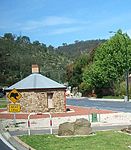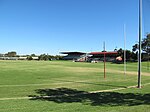Concordia College (South Australia)
1890 establishments in AustraliaEducational institutions established in 1890Elementary and primary schools affiliated with the Lutheran ChurchHigh schools and secondary schools affiliated with the Lutheran ChurchInternational Baccalaureate schools in Australia ... and 4 more
Lutheran schools in AustraliaPrivate primary schools in AdelaidePrivate secondary schools in South AustraliaUse Australian English from August 2015
Concordia College (CC) is an ELC-12 private, co-educational Lutheran school located in Highgate, Adelaide, South Australia. Established in 1890, the College is a school of the Lutheran Church of Australia and has been an International Baccalaureate (IB) World School since January 2001, offering the IB Primary Years, Middle Years and Diploma Programmes. Concordia is a Latin word meaning "harmony".
Excerpt from the Wikipedia article Concordia College (South Australia) (License: CC BY-SA 3.0, Authors).Concordia College (South Australia)
Winchester Street, Adelaide Highgate
Geographical coordinates (GPS) Address Nearby Places Show on map
Geographical coordinates (GPS)
| Latitude | Longitude |
|---|---|
| N -34.959785 ° | E 138.617618 ° |
Address
Concordia College and St Johns Lutheran School
Winchester Street
5061 Adelaide, Highgate
South Australia, Australia
Open on Google Maps



